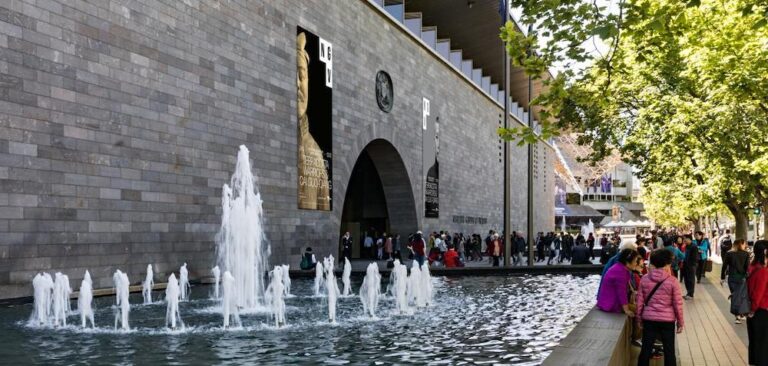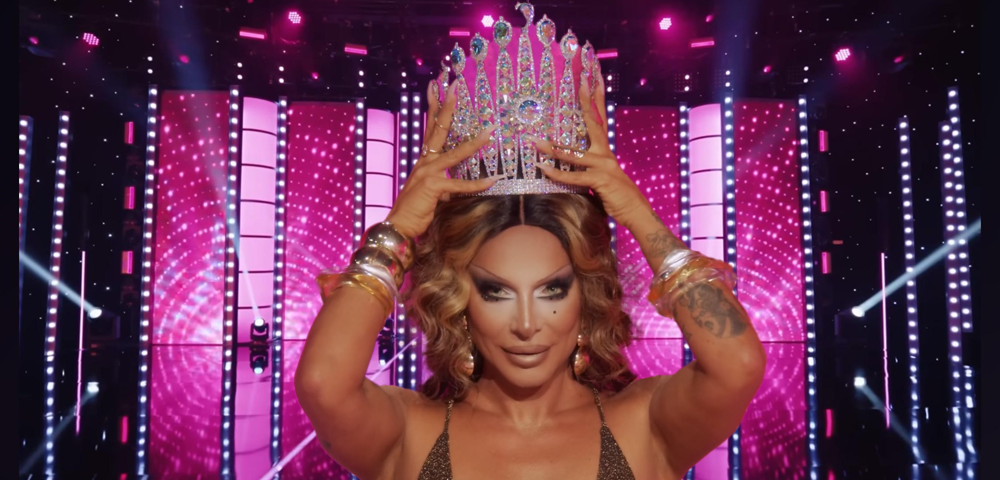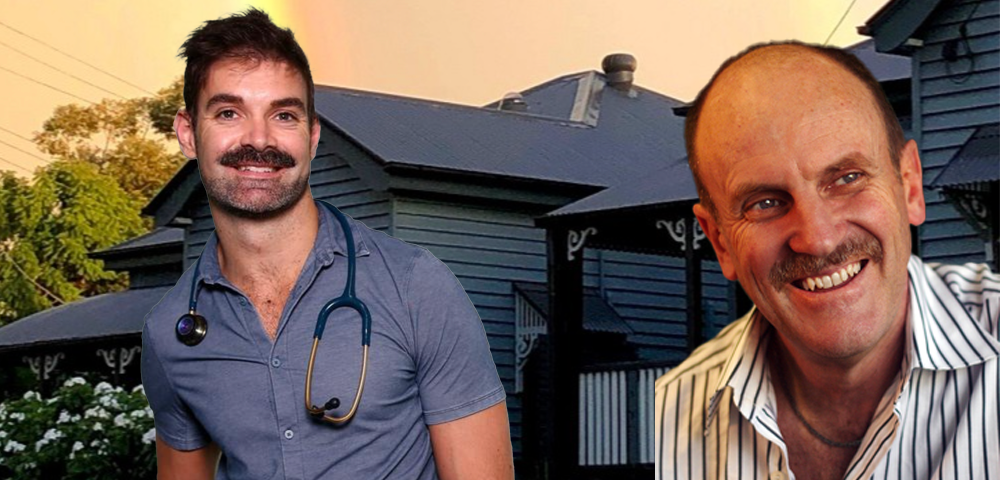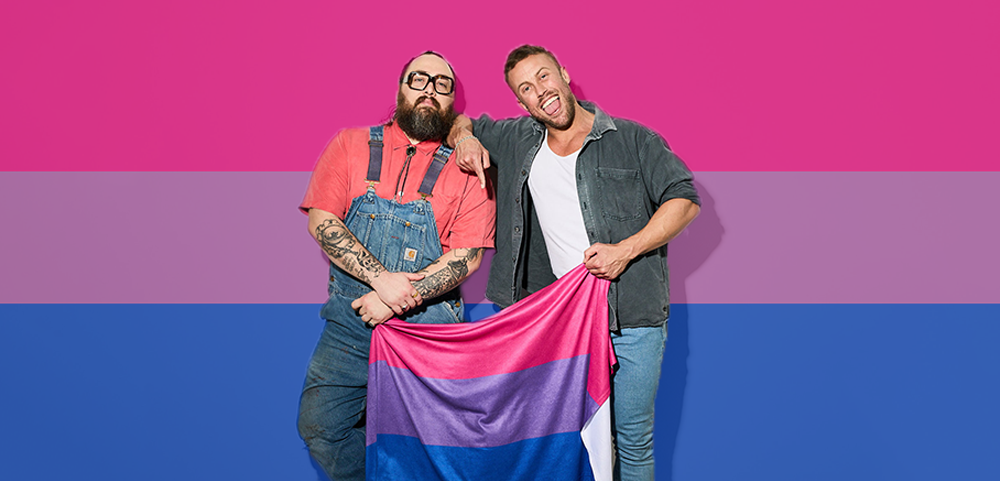
Katter called out by gay brother
Queensland Independent MP, Bob Katter has been called out by his own flesh and blood over comments he made at an anti-same-sex marriage rally in the Great Hall of Parliament last Tuesday.
Carl Katter, Bob Katter’s gay younger half brother spoke to Channel Ten’s George Negus about what he said was the homophobia coming from the anti-same-sex marriage camp in Australia in recent times, which was something he had to speak out against when he was so fond of this country.
Carl said whenever he saw his brother on the news he turned him off, but the comments he had made were “hurtfull.”
“It’s dangerous, it’s damaging and it’s really inappropriate,” Carl said, “[He] doesn’t give any support to his argument by perpetuating hate.”
“He doesn’t seem to represent the whole of his community and he denies the fact that there are a lot of gay people in his community.”
“People may assume that we’ve made some leaps and bounds in terms of equality really but we haven’t.”
“I don’t know how he can target a minority and persecute them in the way he has.”
“His gross generalisations are just inappropriate in today’s society. I can’t believe that I’m actually here in 2011 talking about this.”
When asked by Negus if he planned to get married one day himself, Carl said, “Pretty much like everyone, if the right person comes along and I want to spend the rest of my life with them, I would definitely like to marry them.”
Asked if he would invite Bob to the wedding, he said, “I don’t think he’d come and I have a lot more important people and valuable people in my life that I’d want to involve.”










Dave, not sure it was you but somebody posted that marriage is a basic right. In actual fact basic human rights are: food, water, clothing, shelter. Also in a democracy people do have the right to oppose Gay marriage.
The interesting thing about this story is that the Katters seem to be like every other family in Australia – there’s alternate sexuality in the ranks, and with half siblings they are not a nuclear family. It’s such a shame that Bob wants to keep all that in the closet, because commonality with others is the greatest asset to any politician.
[…] flies in the face of Bob KatterThe North West StarThe Daily Telegraph -NEWS.com.au -Sydney Star Observerall 124 news […]
The anti-Marriage rally in Canberra was not about Marriage, but GLBTI hate. We were likened to child molesters and were called the Greatest Evil, while people like Bob Katter and Kevin Andrews stood shoulder to shoulder applauding. The Australian Family Association who organized the rally, had just a few years ago on their website that homosexuality was a cancer.
The rally happened while outside of parliament a coffin was dragged around with the name Julia Gillard on it, while Tony Abbott applauded.
The first law against Same-Sex Marriage was implemented about 349 years after the death of Christ (although we have no proof he existed), and the last law against it, was in Australia when John Howard changed the Marriage Act to exclude Same-Sex couples who were married and living in Australia. The redefinition of Marriage to exclude people on the basis of sexuality was not even put to a vote in Australia. Same-Sex Marriage happens in other countries, and will continue long after we all depart.
There is a world of difference between comparing us to Hitler, and politicians like President Obama or Church leaders like Desmond Tutu.
To quote from Anglican Arch-Bishop and someone who really understood discrimination.
“To penalise someone because of their sexual orientation is like what used to happen to us; to be penalised for something which we could do nothing [about] — our ethnicity, our race. I would find it quite unacceptable to condemn, persecute a minority that has already been persecuted.” Nobel Peace Prize winner and Anglican Archbishop Desmond Tutu.
http://www.youtube.com/watch?v=SeLDsBPSzYg&feature=related
President Obama 2009
“Forty years ago, patrons and supporters of the Stonewall Inn in New York City resisted police harassment that had become all too common for members of the lesbian, gay, bisexual, and transgender (LGBT) community. Out of this resistance, the LGBT rights movement in America was born.
“LGBT Americans have made, and continue to make, great and lasting contributions that continue to strengthen the fabric of American society. There are many well-respected LGBT leaders in all professional fields, including the arts and business communities. LGBT Americans also mobilized the Nation to respond to the domestic HIV/AIDS epidemic and have played a vital role in broadening this country’s response to the HIV pandemic.
“I am proud to be the first President to appoint openly LGBT candidates to Senate-confirmed positions in the first 100 days of an Administration.
“The LGBT rights movement has achieved great progress, but there is more work to be done. In the last four decades legislation has been enacted in many states to ensure that we hold our most dear American Promise: that we are all equal under the law. However, no state provides full legal equality to guarantee that each person is treated equally independently of sexual orientation or gender identity and expression.
“Other states fall far behind in what most Americans believe to be fair and just.
“Congress has not passed a single piece of legislation in the four decades since Stonewall to ensure that Americans who are lesbian, gay, bisexual or transgender are treated equally under the law. So, millions of Americans remain denied this American Promise.
“In these same four decades, Congress has passed two pieces of legislation that do the exact opposite and that actually openly discriminate against those Americans. As I said in my campaign, I support repeal of the Don’t Ask Don’t Tell legislation, as well as the repeal of the entire Defense of Marriage Act.
“I am here to tell you that yes, we can end discrimination. And that yes, the time for this is now.
“Many will argue that while equality is a worthwhile goal, civil rights have been given incrementally. They will also tell you that we have other important priorities.
“But I ask: Where is our moral compass when we knowingly continue to allow members of our society to be unequal under the law? Where is our moral compass when we have laws that openly discriminate against some members of our society?
“How do you tell a parent that the daughters and sons they love so much will not be treated equally under the law? That one will be able to serve his country, while the other will be fired for doing the same thing? That one will be able to marry and raise a family with all the protection that the law affords, and the other will not?
“We may not agree with every person. But we have to respect them. And the law has to apply equally to every person in the same way.
“Many of the problems that we face require solutions that are complex. Many of these problems have different solutions, which some uncertainty about which solution might be best.
“For instance, Congress already analyzed and enacted legislation on one of our most important and difficult problems: the economic crisis. Work is underway now on healthcare reform.
“But inequality under the law is not a difficult problem to fix. We just have to ensure that all citizens are covered by our existing laws in the same way. No more and no less. We also need to repeal two laws which fly in the face of equal protection under the law: the Defense of Marriage Act, which not only acts against the rights of the States, but also religions, and the Don’t Ask Don’t Tell policy that acts against the national security of our nation because it deprives our armed forces of personnel we need.
“There is never an ideal time to enact legislation for equal rights. Yet every moment that passes, and we don’t act, injustice continues. There are always reasons to delay. But ensuring that we live to our highest promise of equality needs to happen now. It is our moral imperative, since delays just end up denying the rights and protections to those who do not deserve to be left out.